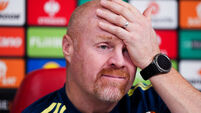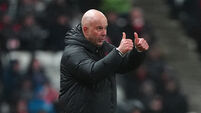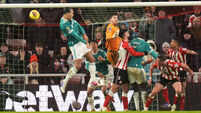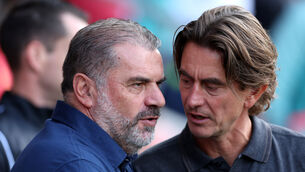Trap in need of Stan’s Tigers now
Because, exactly six years ago, the Italian’s immediate predecessor found himself in an almost identical situation to that now facing the current boss.
In October 2006, Ireland had just topped off a dreadful summer with an utterly atrocious display away from home against one of the group’s also-rans. It sparked all manner of debate about the future of the manager and direction of the team.














